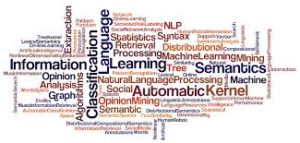28 September 2017 – As Antonio García Martínez explains in his recent book Chaos Monkeys (he is an ex-Facebook executive whose book will help you navigate the Mark Zuckerberg PR “Fantasy Express” and the sophisticated technology manipulation actually at play at Facebook) the semantic intelligence analytics software we now have available is off the charts. I have been using several such analytics platforms for my “long read” piece on Facebook. This technology has allowed IT departments and end-users to semantically link, analyze and manage diverse data whether internal or external, structured or unstructured, with speed, at big data scale and at the fraction of the implementation costs of using traditional approaches. User-friendly. Right on your laptop, tablet or phone. It’s incredible.
During my research I came across a company called Expert System and their analysis of Brexit sentiment.
The folks at Expert System have clearly demonstrated their semantic intelligence chops with an analysis of sentiments regarding Brexit as expressed through tweets. The company shares their results in their press release, “The European Union on Twitter, One Year After Brexit.” What are Europeans feeling about that major decision by the UK? The short answer – fear. The write-up tells us:
One year on since the historical referendum vote that sanctioned Britain’s exit from the European Union, Expert System has conducted an analysis to verify emotions and moods prevalent in thoughts expressed online by citizens. The analysis was conducted on Twitter using the cognitive Cogito technology to analyze a sample of approximately 160,000 tweets in English, Italian, French, German and Spanish related to Europe (more than 65,000 tweets for #EU, #Europe…) and Brexit (more than 95,000 tweets for #brexit…) posted between May 21 – June 21, 2017. Regarding the emotional sphere of the people, the prevailing sentiment was fear followed by desire as a mood for intensely seeking something, but without a definitive negative or positive connotation.
The analysis revealed a need for more energy (action), and, in an atmosphere that seems to be dominated by a general sense of stress, the tweets also showed many contrasts: modernism and traditionalism, hope and remorse, hatred and love.
The piece goes on to parse responses by language, tying priorities to certain countries. For example, those tweeting in Italian often mentioned “citizenship”, while tweets in German focused largely on “dignity” and “solidarity.” The project also evaluates sentiment regarding several EU leaders.
NOTE: Expert System was founded back in 1989, and their Cogito office is located in London.
For me, as a researcher and writer, the ability to use the contextual clues surrounding the words and phrases of the content of an article – to better understand the implied or practical meaning of the content of an article – is an amazing tool. And that, in a nutshell, is semantic analysis. As humans, we do this really efficiently and almost unconsciously. We filter all the context surrounding a word/phrase/object/scenario, pull out the relevant pieces, compare them against our past experiences, and use them to deepen our understanding of the content at hand.
Machines have historically been bad at this because they lacked that filter – that ability to determine what is relevant and why. But advances in Machine Intelligence and Natural Language Processing have impacted deep semantic analysis so heavily through advanced algorithms, powerful computers (and a lot of practice) that today’s machines just keep getting better and better.
